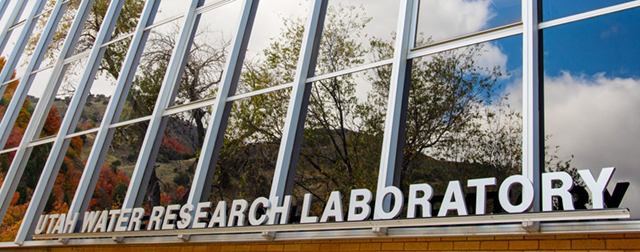Document Type
Report
Publication Date
6-1975
First Page
1
Last Page
174
Abstract
Artificial destratification is being increasingly used in attempts to improve water quality and control eutrophication. Most of the artificial destratification efforts are being conducted by public water supply utilities in efforts to improve reservoir water quality for culinary purposes. At present, artificial destratification is being conducted without a complete understanding of the process or its effects on the reservoir. Whether or not artificial destratification can control algal growth and other microbial processes is a controversial question. The effect of artificial destratification on the microbial flora must be understood if it is to be used effectively as a management tool in the control of water quality. In recent years a blue-green algal bloom has developed during the summer in Hyrum Reservoir. The massive bloom of Aphanizomenon jlos-aquae presents esthetic problems to those using the reservoir for recreational purposes. These esthetic problems have reduced the use of the reservoir for swimming, water skiing, and fishing. It is believed that artificial de stratification, or the destruction of natural stratification obtained through diffused-air aeration, will improve the water quality of the reservoir.
Recommended Citation
Drury, Douglas D.; Porcella, Donald B.; and Gearheart, Robert A., "The Effects of Artificial Destratification on the Water Quality and Microbial Populations of Hyrum Reservoir" (1975). Reports. Paper 508.
https://digitalcommons.usu.edu/water_rep/508



Comments
This work made publicly available electronically on May 17, 2012.